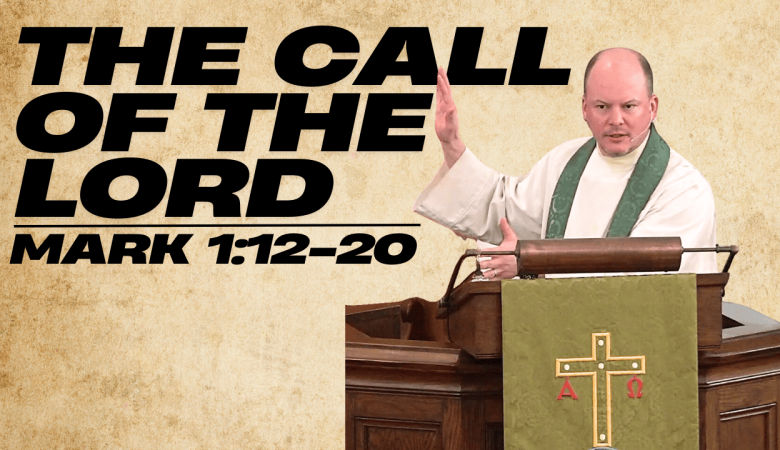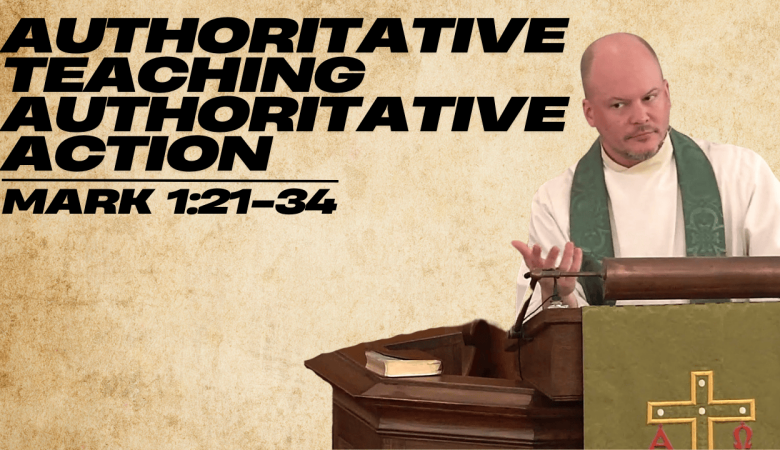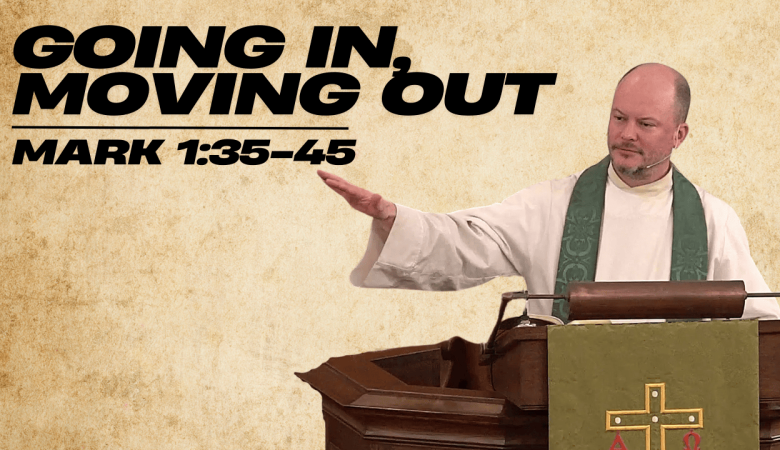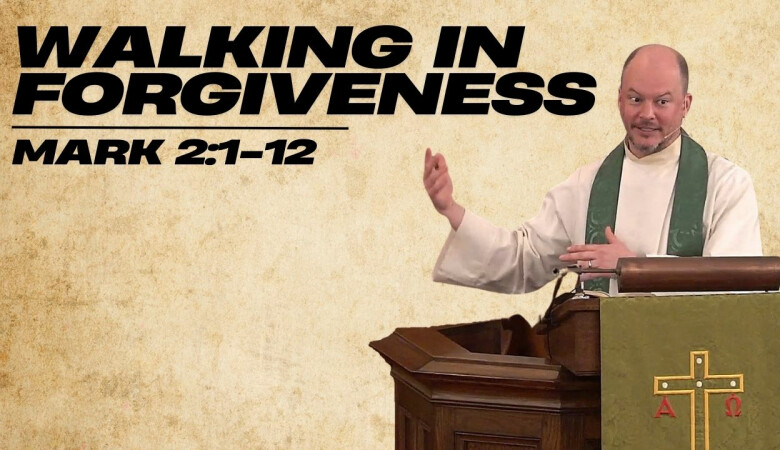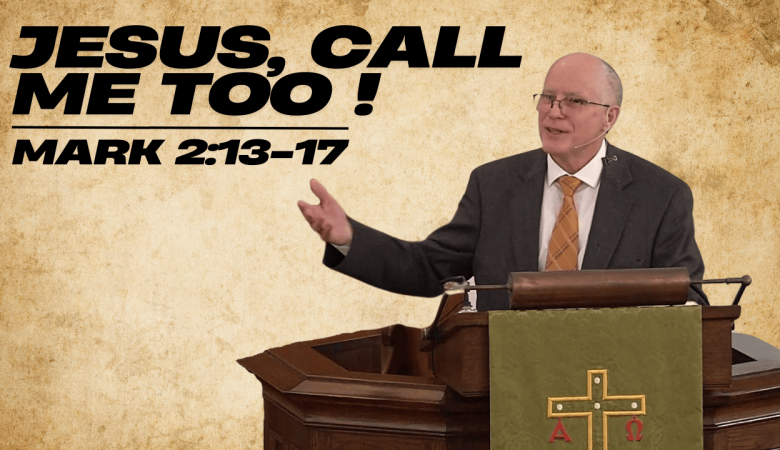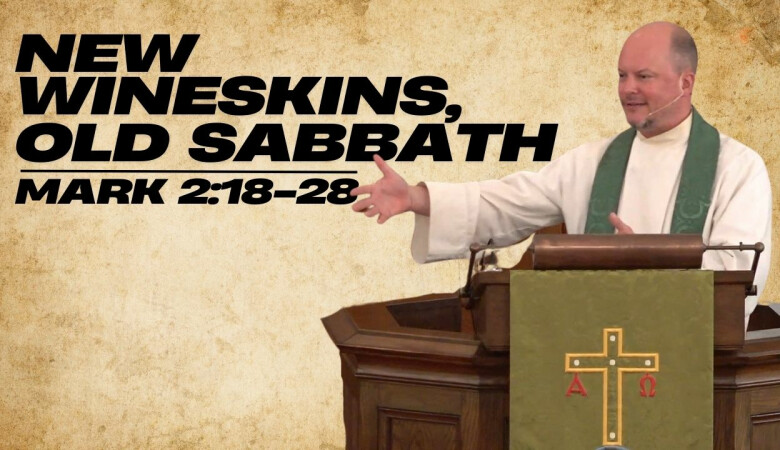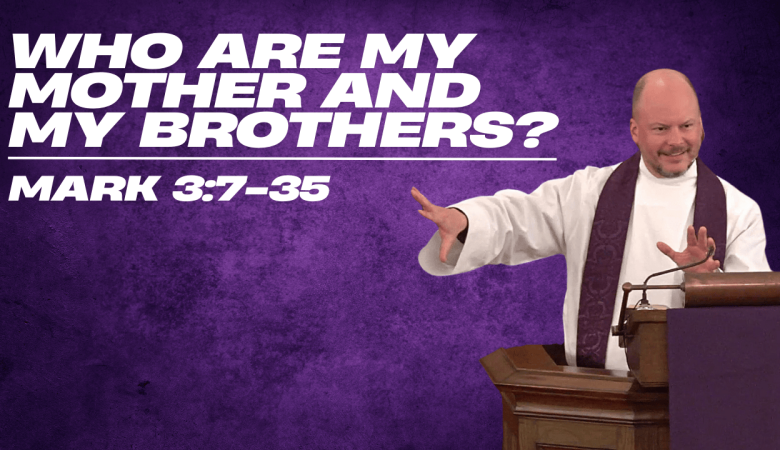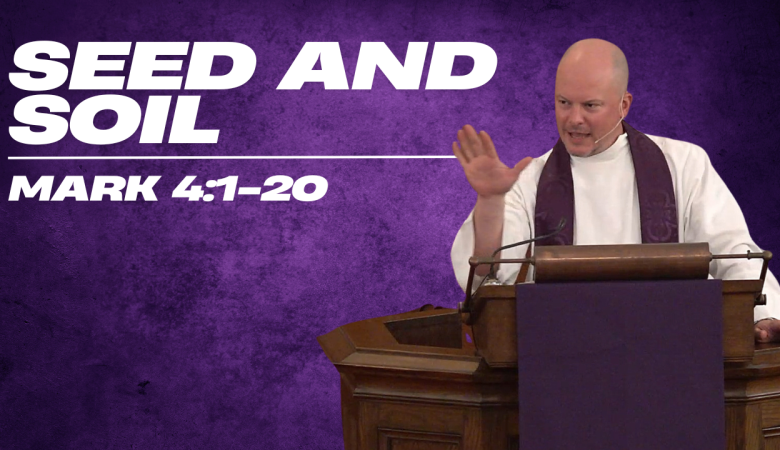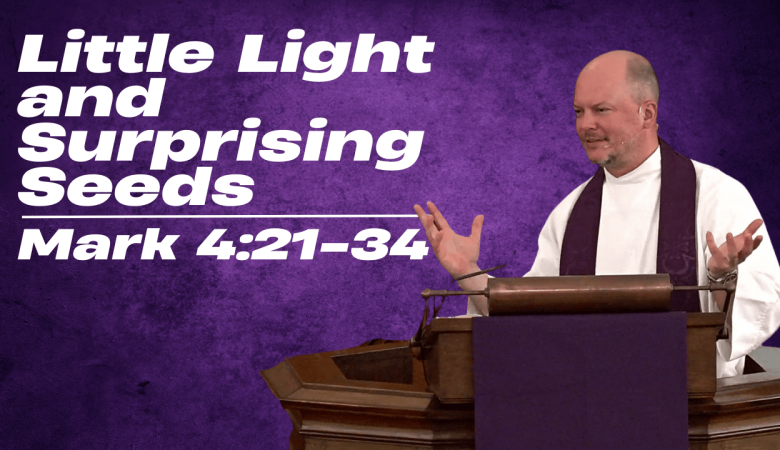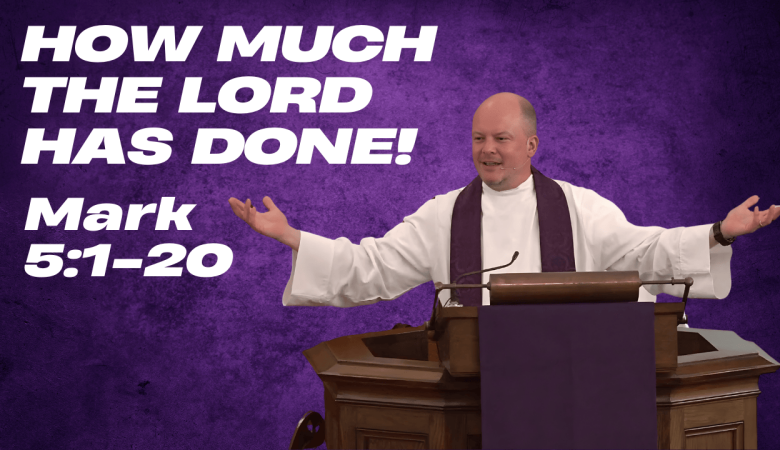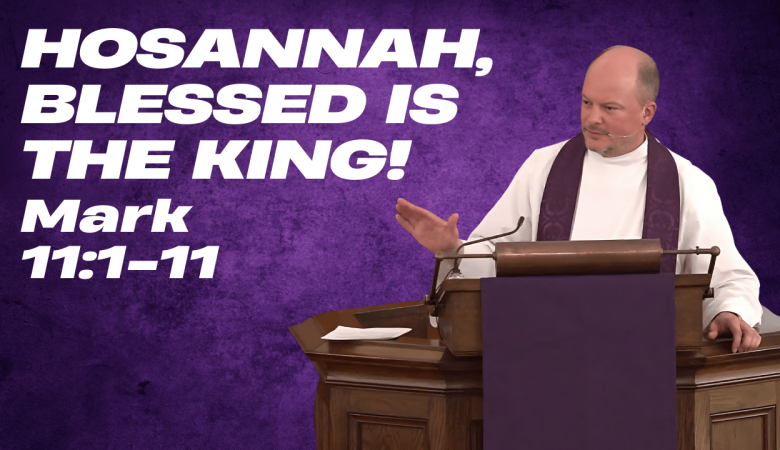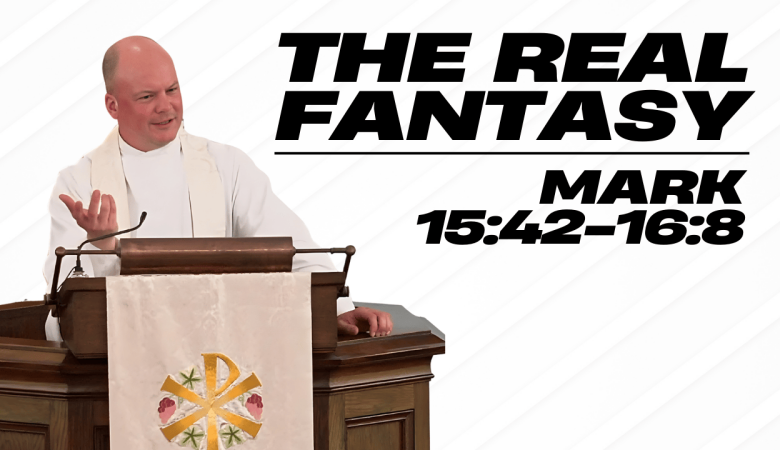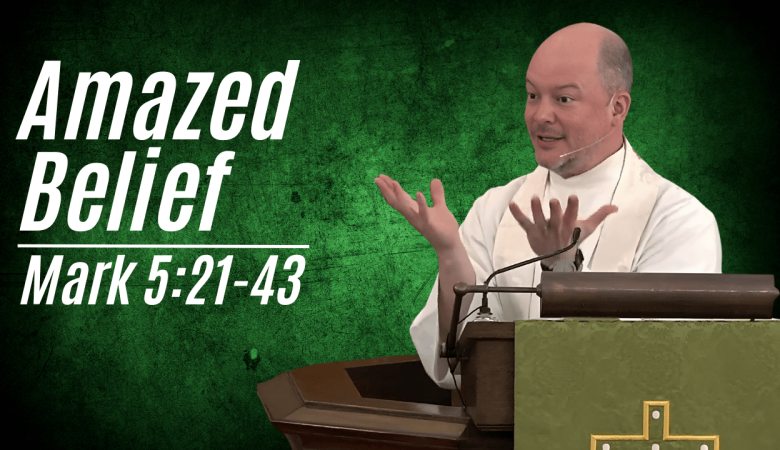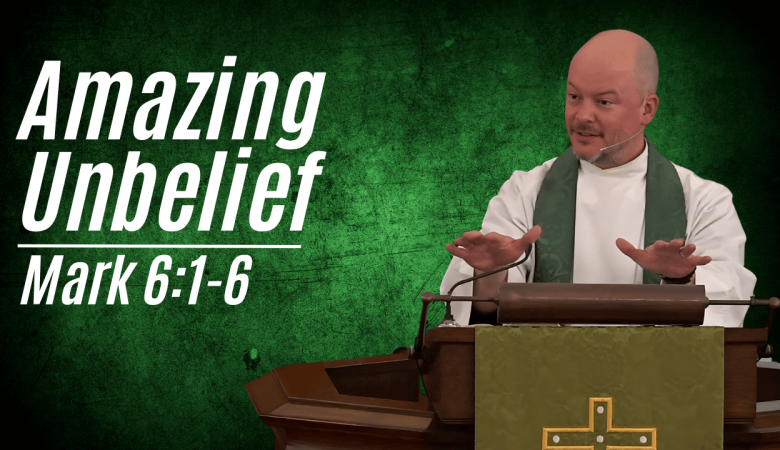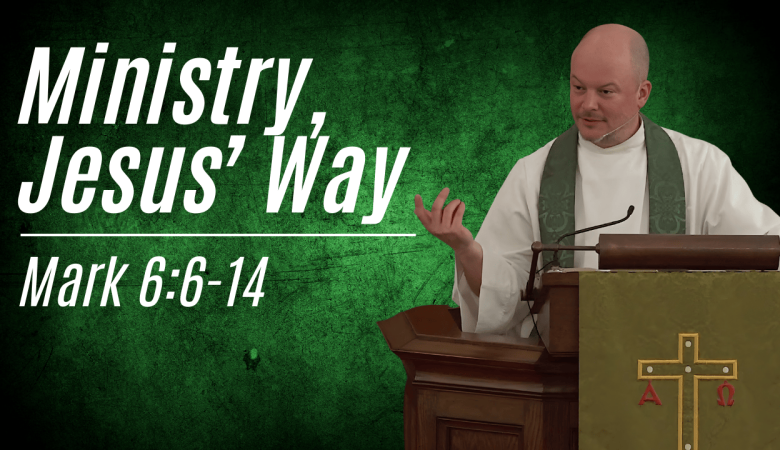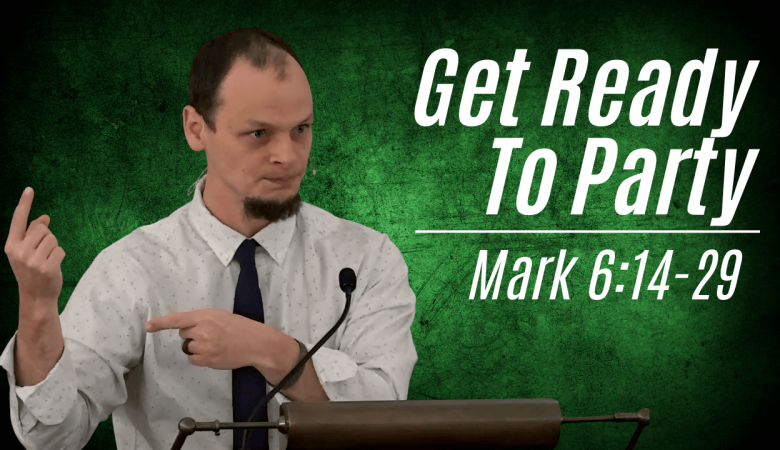Series: The Gospel of Mark
With Jesus in the Storm
March 30, 2025 | Peter Rowan
Summary
Mark's great 4 chapter is about the power of the words of God, but also about discipleship about those who hear the word and live accordingly. In rhetorical flourish, Mark gives us this dramatic scene of Jesus asleep in a boat where his disciples are full of fear because of the storm they find themselves in. And yet, with a word, he calms it. And then rebukes his disciples. Why? Because true faith in the God who will bring us to the other side gives courage not timidity.
Transcript
In 1895, Winston Churchill, was a young officer in the 4th Hussars - a cavalry unit of the brattish army. Well, he was kicking his heels doing nothing in London and decided he needed to see some action. The only war at the time was in Cuba so, once he’d got permission from the Spanish government in Madrid, he sailed to Havana. There he took a train to Cienfuegos, a boat to Tunas de Zaza and then another train to Sancti Spiritus where he joined the Spanish Army, under the leadership of General Suárez Valdés. They trekked to Arroyo Blanco where Churchill celebrated his 21st birthday on 30 November 1895. His birthday present was to come under gun fire for the first time in his life as the Spanish troops he was with came up against the Cuban forces, led by Máximo Gomez and Antonio Maceo. Churchill spent only a few weeks in Cuba before heading back to England, but he wrote home to his mother about that birthday. This is what he wrote: “There is nothing more exhilarating than to be shot at with no result.”
I think we know this in other ways. We are all glad that the Eagles won the Super Bowl but it wasn’t very exhilarating. How much better would it have been if it would have come down to the wire, if Travis Kelce and Patrick Mahomes would have had the game of their lives and then Eagles with a hail Mary pass to the end zone? That would have been a game!
I have no interest in the Chicago Cubs - after all, I lived in St Louis for 4,5 years and attended many Cardinals’ games, but there is something about a world series that goes all of the way to the 10th inning and a loosing streak of 108 years is put to rest. Here’s how one Sport’s Writer summarized the 2016 World Series:
The Chicago Cubs defeated the Cleveland Indians 8-7 in a mind-blowing, nerve-jangling, heart-stopping mess of a game, a 10-inning acid trip that tested the limits of your sanity, made baseball history and ended 108 years of anxiety. Every inning of this game pushed the night closer and closer to becoming a Salvador Dali painting brought to life. It was surreal, it was painful, it was delirious. It was four hours and 28 minutes of madness, culminating in an ending that still doesn't seem real.
“There is nothing more exhilarating than to be shot at with no result.”
And yet, truthfully, one of the thing that we quickly come to terms with in life is that we all get shot at with result. You don’t have to live too long in this world before you feel and you know the reality of pain, of sorrow, of hurt, of words unkindly spoken, of jobs lost, of the death of loved one, of our own impending death, of storms across the waters of the seas of our lives. We all get shot at with result.
We do all we can now to keep death away. We distract ourselves - we Netflix, we air-condition, we tweet, we obsess over the latest news. We medicate - taking supplements to keep us young, painkillers to numb the growing aches, drinks to keep us distracted. We segregate by age. Churches are largely divided up by young and old church We sequester those who are close to death, unlike those who went before us, into nursing homes and other facilities, keeping them away from having to remind us of our own fate.
But we cannot get away from being shot at with result.
A number of years ago Lillie had come to the age - and maybe it is because her dad has done a coupe funerals the last couple months - where she is asking about death.So I told her the story of one of my favorite dogs that I had growing up, a golden-retriever named Shimery. Shimer loved to dance and she and I used to dance together, but she, after a wonderful life, died. So I told Lillie that story and then she told it to be over and over agin that week. The conversation goes like this:
L: Daddy, can I tell you a sad story?
Me: Sure, sweetie
L: There once was a boy who had a dog that he liked to dance with, and she died.
She was coming to terms with this world being a world where we are shot at with result.
But this coming to terms with pain, with brokenness, with sorrow, with fear, with unrest, with death, is often what God uses to brings us to himself. Being shot at is often what God uses to bring us to faith in him.
- S. Lewis, in his masterful book, The Problem of Pain, says "...pain insists upon being attended to. God whispers to us in our pleasures, speaks in our conscience, but shouts in our pains: it is His megaphone to rouse a deaf world."
Jesus ministry wasn’t very long. It was only about three years. And it was busy. We really quickly get this sense in Mark. Healing and preaching already in chapter 1 and 2 and 3 and then this long narrative of teaching in chapter 4 at the bay of Parables along the shore of the Sea of Galilee. We know that the crowds were so great that he got into a boat to teach and here he is still in that boat. Vere 35 tells us that it was evening and verse 36 says that they took him in the boat, as he was, as if to say that the whole day had been spent in the boast teaching. And, of course, because of the business of such a life, he would also be very tired. So it should be no surprise that he recommends to his disciples that they get away in a boat and cross the sea of Galilee. Beyond that, it should come as no surprise that the rocking to and fro of the boat on the sea would have quickly put him to sleep. For all of Mark’s clear teaching that Jesus is in fact God with us, he is the God-man with us. Here in this passage is Christology, the doctrine of Christ, at it’s finest and most distilled. The God-Man with us. And as one commentator say, our Christology leads to our discipleship. How we live has everything to do with what we think of Jesus.
Anyway, they are in this boat after a long day of teaching, and it is then, when they were sailing across the sea and as Jesus had just fallen asleep that a windstorm came down on the lake. This would not have been entirely abnormal. After all, the Sea of Galilee often has sudden storms. It’s located 700 feet bellow sea level and it has hill rising on it’s eastern shore that lead to the Golan heights which rise to 9,200 feet in elevation. There are gorges in those mountains that Jesus likely used as amphitheaters for his teaching. Well, when the temperature shifts, the cool mountain air rushes down those gorges from the higher elevations and can easily whip up the water of the Sea of Galilee in such a way that small boats could easily be swamped.
It is right then, right in the middle of a storm that has rushed upon the Sea of Galilee and the disciples of Jesus in the boat, that Jesus is asleep. He’s asleep.
And they go to him and they rouse him. The disciples probably said many things in that moment. Luke tells us that they said, “Master, Master, we are perishing!” Matthew tells us they said, “Save us, Lord. We are perishing!” But Mark us they said, “Teacher, eo you not care that we are perishing!”
And listen how simply Luke tells us what Jesus did: And he awoke and rebuked the wind and the raging waves, and they ceased, and there was a calm.
Just like that. He wakes up, he rebukes that wind and the raging waves, and it is all calm again. Just like that. A word and the storm is still. Just like that.
We stand in awe of that, as we should. “They were filled with great fear and said to one another, “Who then is this, that even the wind and the sea obey him?” Here is God in the flesh. Here he is demonstrating that he has all power over all of creation. Just as he was the one who spoke the wind and the waters into being at creation, so here he speaks and the wind and water listen again to his word and do his will. Here, in a powerful way, we see Jesus, the man sent from God, the man who is god, displaying his divine authority, his power on behalf of those who put their trust in him.
It is for this reason that Christians have always taken this story as so central to their life. Many of you have likely seen the paintings throughout the centuries from Delacroix, to Rembrandt, to Bruehgel the Elder and many of you may know that this story was often depicted in early Christian art. Christ, the long waited-for Messiah, the God-man with his disciples in the midst of this storm. The dark waters, the raging waves, the disciples doing all they could to just stay in the boat. And of course this image has been so central to the life of faith. The Bible time and again uses the image of the sea to depict for us the uncertainty of life, the fear of death, the chaos of our world. But into that Jesus simply speaks and waves are stilled. Amazing. But as amazing as this is, what struck me as I tudied this this week is that Jesus takes this astonishing moment and turns it into a lesson about faith. They come to him in this midst of getting shot at, in the middle of the storm of their lives and ask for help. And he helps. He always helps when we come to him. But, here he rebukes his disciples’ lack of faith.
Luke He said to them, “Where is your faith?” In Matthew’s gospel he acutely calls them a name, “Littlefaiths!” Mark - “Have you still no faith?!"
But they had already demonstrated faith. They had. Peter, James, and John had left their fishing business back in chapter 1 to follow him. Matthew left his tax collecting business back in chapter 2 to follow him. They had seen his power to heal, they had walked with him, they had called him Lord. They came to him with their questions about the parables. Even here, they turn to him in their time of need. They woke him up. Maybe they shook him awake, maybe they yelled in his ear over the loud sounds of the waves. They certainly had faith of a kind.
But think back to the parable that Jesus had just taught them and the crowd and think back over how Jesus had taken time to explain to his disciples what it meant. The Words of God are like seeds that are sown. Some fall on the hard path and never take root. Some fall among rocks and shoot up quickly but die when any trial comes. Some fall among weeds, that are choked by the cares of this life and their faith does not continue and they do not produce fruit. Some fall among fertile soil and the seed takes root. The plant becomes strong, and though wind and waves batter against that plant, it bears much fruit.
“Where is your faith?” Jesus tells them.
I wonder what you do with this. What do you do with Jesus here? What do you do with his question to his disciples? Does it all sound crazy. I mean, how often is our experience like the disciples. The waves of this world bash against us. The pain of this world overwhelms us. The weeds of this world choke us. The reality of living in a world where death and destruction and decay seem to be the way things are batter against us and we think, “God is not there. He is gone. He doesn’t care.” It has been the way for many people who were once followers of Jesus. When sorrows like sea billows roll, they no longer have the eyes of faith. And we often get rocked in the same moments the disciples did. This was what they had trained for, what they had spent their life doing, this is where they have been most confident. The boat was where they lived, but it seemed to be where they would perish. Isn’t that where our faith is so often most unstable. We read parenting books, we attend conferences and our children reject the Lord. We spend years at work only to be told that the company is restructuring and our job is no longer needed. Our spouse that we have been devoted to for years think another will satisfy. These are the moments we cry out. It make all the sense in the world that these disciples are crying for their lives. “Do you not care that we are perishing”
But it also makes all the sense in the world that Jesus say “Why are you so afriad?”
But the disciples could have reveled in this storm. It was Jesus’s own idea to go to the other side and if he said he let’s go, he would get them there. Think, God himself was in the boat. Jesus, Emmanuel, God with us, was in the boat with them. Did they really think that the one who raised Lazarus from the dead would not care for their fate? Did they really think that the Savior of the World was going to be overcome by a storm? Did they really think that the one who spoke the world into being could not calm the waves? Didn’t they realize that as high as the waves were, as deep as the sea, as loud as the sound of the rushing wind was, there was no safer place in all the world than right there with their Savior.
The disciples missed an opportunity that night. They did. They were being shot at and there was no way that they were going to be hit. I know that Lieutenant Dan in Forrest Gump was taunting God when he was strapped up on the mast in the middle of the storm, but even there in that movie it seems that scene was used to give him faith. Think, that could have been these disciples! And how wild it would have been! Maybe they talked to one another afterward about how fun that could have been. “Why did we cower!” The word Jesus uses in verse 40 when he says “Why are you so afraid?” Is why are you “cowardly”. It’s different than the word for fear (phobos - where we get phobia) in verse 41. Think of how many surfers would just love that experience! Being tossed by the waves in the full assurance that they could not be ultimately harmed! And that is what Jesus longs for for his disciples and for you and me. He longs for us to have the freedom of not living in cowardly fear. And his perfect love casts out fear. So he rebuked them because out of love for them he called them to a deep faith, to a rooted faith, to a sure faith, to a bold and daring faith. Shakespeare tells us in his famous Sonnet 116 that true love is so sure that it “looks on tempests and is never shaken”.
Churchill said, “There is nothing more exhilarating than to be shot at without result.” The great Blaise Pascal, who had real faith in Christ, wrote: “There is some pleasure being on board a ship battered by storms when one is certain of not perishing.” The beauty of the life and death of Gail Pennay is that “to live is Christ and to die is gain.” He takes us to the other side!
They could have reveled in the storm being certain they would not perish. And that is your situation if you are in Christ. It is. It is not that you don’t have storm, it’s not that you aren’t shot at, it’s not that life’s trials are not real trials. They are. But that Jesus, the god-man, is right there with you in the boat, in the trench, in your trials, in your troubles, in your dangers. He is Emmanuel, God with us.
The Lord was right there in the boat with them; they could rouse him with a shake. But faith says that he is no less present with us. He is no less present with us in the storms of our lives. He will take us safely to the other side. Let’s pray.
Series Information
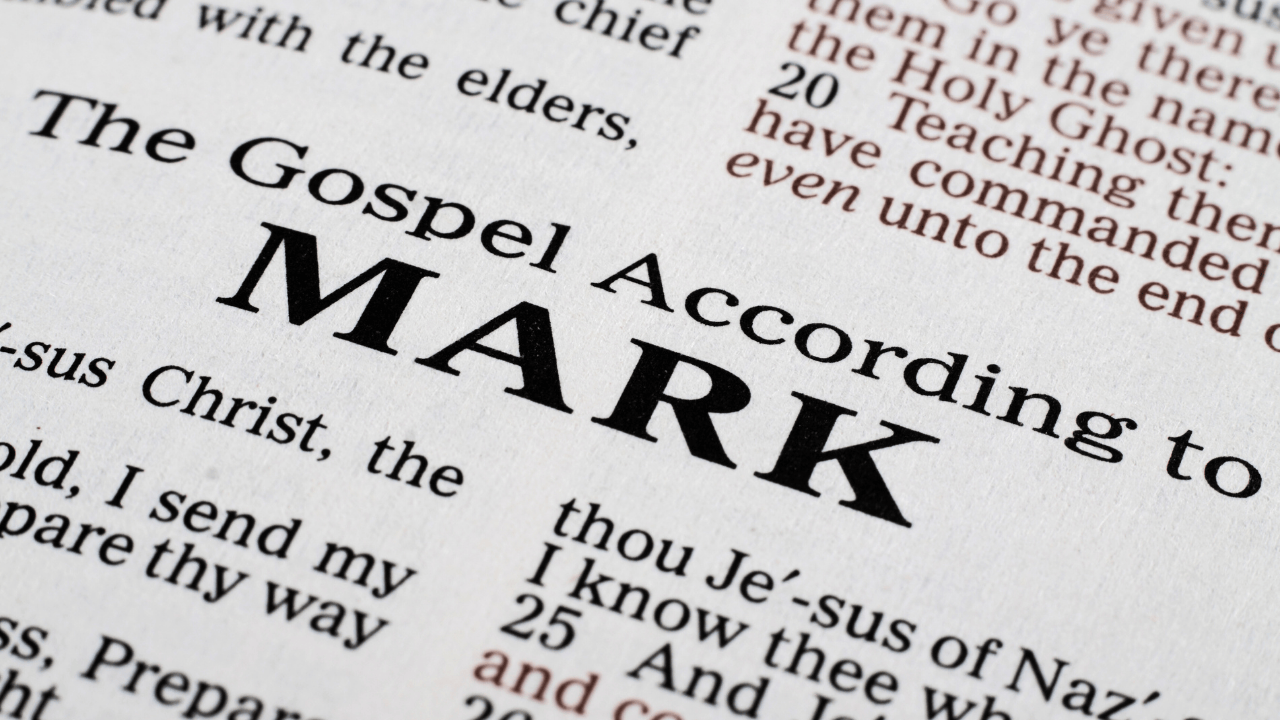
Mark's gospel is fast. He jumps right into what is central to the good news, the gospel, of Jesus. John the Baptist comes, and he is great, but his whole message is one of preparation for the greater one who would come after, Jesus. And everything John says has to do with this comparison of just how great Jesus is. We also see this through the writer of the gospel, Mark, and the apostle who was behind Mark's writing, Peter. Then we quickly move to Jesus' baptism by John and we see here the other central idea of the gospel, that this great one who has come humbles himself to associate and own the sins of humanity. Here is good news!


